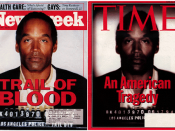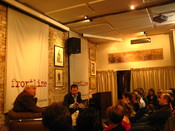Throughout newsrooms across the nation there are journalists making phone calls, conducting interviews and working diligently on the latest breaking news stories. Most likely, at one point or another in every journalistÃÂs career they are taught a certain code of ethics. The main purpose for the code of ethics is to ensure that journalists are doing their job in a professional manner and that the general public is being presented with the most unbiased and truthful information available. So is it possible for a journalist to live up to this standard while at the same time paying for a sourceÃÂs information? Many news organizations have termed this as ÃÂcheckbook journalismÃÂ and are opposed to the practice, but many journalists around the globe admit to having used this tactic at least once in their career. Opinions on the subject are mixed, but I feel that paying for a sourceÃÂs information should not be considered as taboo as it has become.
To be able to make a decision leaning in either direction of the topic, it is first necessary to understand what exactly constitutes ÃÂpaying for informationÃÂ. For some critics, paying for information can be anything from trading tidbits of information between two news organizations, to writing a one million dollar check to a source. Some journalists donÃÂt even think it is appropriate to buy a source a cup of coffee. Others people feel that checkbook journalism is simply an exchange of cash for the news.
With media competition being as fierce as it is and news organizations always wanting to be the first ones to break a story, it almost seems necessary to offer sources some sort of incentive.
It seems to be that the issue of whether it is ethical to pay for information usually arises during times of great scandal. When Watergate happened things were paid for, during the O.J. Simpson trial everyone was willing to pay a certain price for any type of information they could get there hands on.
Those who are supportive of journalists being able to pay for information have some solid points. In Kelly HeyboerÃÂs article Paying for It, the reporter argues that ÃÂif a reporter verifies a story through outside sources, does it really matter if the original tip was paid for?ÃÂ (1) This brings up a good question, because the journalist would then be presenting true information, but paying out of their own pocket.




